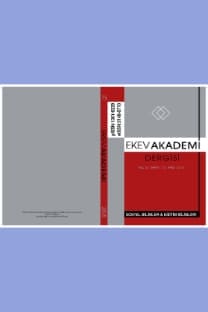İSLAM HUKUKÇULARININ ŞEHÎDLERİN YIKANMASI VE ÜZERLERİNE NAMAZ KILINMASIYLA İLGİLİ FARKLI YAKLAŞIMLARI
İstisnai görüşler bir tarafa şehide dünyevi hükümler açsısından farklı bir uygulama yapılacağı konusunda ittifaka yakın bir durum söz konusudur. Bu farklılık da şehidin yıkanması ve üzerine namaz kılınması konularında oraya çıkmaktadır. Aslında şehide dünyevi hükümler açısından farklı uygulamayı kabul edenler arasında belirli şartları taşıyan şehidin yıkanmayacağı konusunda ittifak bulunmaktadır. Şehîd üzerine namaz konusunda ise görüş ayrılıkları bulunmaktadır. Ekoller düzeyinde şehîd üzerine namaz kılınması gerektiği görüşünde olanlar Hanefilerdir. Diğer üç mezhebin görüşü ise şehîd üzerine namaz kılınmayacağı olsa da Ahmed b. Hanbel'den kılınmasının müstehab olduğu görüşü de bulunmaktadır. Yine Şafii mezhebi içinde de belli şartlarla kılınabileceği yönünde görüşler bulunmaktadır. Mezheblerin bahsedilen görüşlerine ulaşmasında tearuz halinde olan nasların ve bu tearuzu gidermede onların farklı yaklaşımlarının etkili olduğu söylenebilir
The Different Opinions of Muslim Jurists on Ritual Ablution of Martyrs’ Body and Performing Prayer over Them
With a few exemptions, there is almost a consensus on that some different funeral rules have to be applied to the martyrs. This difference appears in the washing of the martyrs and performing funeral prayer (ṣalāt) over them. In fact, there is a consensus among those who accept the different applications on that, in terms of terrestrial verdicts, the martyr who is having certain conditions could not be not washed. The disagreements are about performing prayer over martyrs. According to doctrines of Hanafi school of law (maḏhab), prayers have to be performed over martyrs. Even though the other three schools of law agree upon that funeral prayers should not to be performed over martyrs, Ahmed b. Hanbel also argues that its recommended (mustaḥabb) to perform it. Furthermore, there are also some views among the jurists of Shafi school of law which argue that this prayer could be performed only in certain conditions. It could be said that the conflicted legal injunctions (nass) and different approaches to eliminate these disagreements might influence schools of law to reach these kind of different opinions
- ISSN: 1301-6229
- Yayın Aralığı: Yılda 4 Sayı
- Başlangıç: 1996
- Yayıncı: ERZURUM KÜLTÜR VE EĞİTİM VAKFI
Sayıdaki Diğer Makaleler
“LÂ DARARA VE LÂ DIRÂRA” KÜLLÎ KÂİDESİ ÇERÇEVESİNDE İSLÂM’DA ÇEVRE HUKUKU ( )
The Movements Hadiths in the City of Vasitdun'ng First and Second Hijra
BİR İSLÂM MEDENİYETİ ŞAİRİ OLARAK SA‘DÎ-Yİ ŞÎRÂZÎ’NİN POETİKASI
CÂHİLÎYE POETİKASINDA EDEBÎ ELEŞTİRİ ÖRNEKLERİ
İLK ANILARIN BİREYLERİN YAŞADIĞI KÜLTÜRE GÖRE FARKLILAŞMASI
İBN SÎNÂ VE DESCARTES’DA ZİHNİN KENDİNİ İDRAKİ OLARAK BEN İDRAKİ
ÖĞRENME VE STRES ARASINDAKİ İLİŞKİ
ALİ OSMAN ENGİN, İBRAHİM AKSAKAL, MEHMET ALİ SEVEN, Arzu SAYAN
